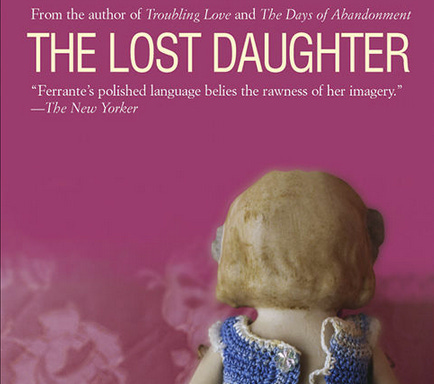The Lost Daughter — An intense tale about motherhood
A book that educated me about motherhood
“The hardest things to talk about are the ones we ourselves can’t understand.”
~ Elena Ferrante in “The Lost Daughter.”
Raison D’etre
All of us pick books because of some reason. It could be a recommendation from a friend. Or a desire to learn. At times, it can also be a random desire to experiment.
I was not curious about complexities caused by motherhood (even though I wanted to be a father someday). However, I had casually expressed that I wanted to be a good father while talking to someone I had met on Bumble.
Time passed, and we kept interacting. However, she friend-zoned me, citing my poor social skills. Despite this, we hung out and spent time together. She was a fun companion/friend, and I respected the boundaries she had set. But one fine day, she said, “You are so nice. I like you a lot. Even I know that you like me. But it will never work out.”
It was the greatest comeback for a guy in the friend-zone. If both of us liked each other, we should be together. Right? In my opinion, the answer was a big yes! When I asked, “why can’t we talk about it?” she said that the topic of kids was a deal-breaker.
She didn’t want me to compromise, either. She swung like a pendulum regarding her feelings for me. Though we had decided to talk about it like mature adults, we never did.
Eventually, I had to break it off, which was a harsh and painful decision. If I had kept in touch with her, I would have never been able to make space for any other woman in my heart.
All of this was running through my head when I came across the book, “The Lost Daughter”, by Elena Ferrante at Kunzum bookstore. I badly wanted to understand why it was so hard to be a mother.
The Book
The book is about an academic and a mother, Leda, who is on vacation on the Italian coast. She sees a big family enjoying nearby on the beach. Their actions remind her of her past. A majority of these memories are around her life as a mother of two kids. As days pass, she befriends other women in the big family, and they start talking.
She recounts how motherhood affected her career, general psyche, and relationship with her husband. Her flashback amidst the events during her vacation forms the meat of the story. Simultaneously, she observes the mother-daughter relationship between Nina and Elena (who’re members of the family on vacation).
Leda discovers a lost doll that belongs to Elena, the daughter. The loss of the doll causes great distress to the child, who believes that the doll is an expecting mother, just like her aunt Rosaria. Elena falls sick after she loses the doll. Nina has a tough time due to Elena’s anger and disappointment over the loss of the doll.
The family hunts for the lost doll while Leda keeps it in her room. The doll reminds her of her childhood toy, Mina.
As Leda recounts her memories, she believes she requires the doll more than Elena. She hesitates to return it to the family despite knowing the havoc caused by its loss. The doll becomes Leda’s companion of sorts. Simultaneously, she befriends Nina, Elena’s mother, and they discuss each other’s opinions about motherhood.
All of this points to the perplexing range of emotions that a woman can have. The behaviour of Leda is very confusing and irrational. But it is what it is.
The author keeps an element of curiosity alive by forcing the reader to ask whether she will return it. I will not spoil the book for you. However, from the literary POV, the doll is a brilliant excuse to tell the real story in the novel.
My Thoughts
The book made me realise that motherhood is a major biological and emotional milestone. A kid can change the entire personality of a woman. And the change is much larger for the mother when compared to that for the father. Even if the support system around a mother is perfect in all possible ways, she is constantly worried about her children. And this is an additional burden for any ambitious woman.
Of course, everyone should have the freedom to make a choice. And I respect the choices made by women who don’t want to have kids. Contrary to aunties’ gossip, laziness or lack of empathy may not be the only possible reason a woman doesn’t want kids. Some women who don’t want kids might be extremely responsible and emotionally mature.
The woman I once liked probably knew that she wouldn’t be able to provide the attention and affection a kid would need, given her career ambitions. Or maybe, she understood the dynamics of relationships much better than me. It could even be something entirely different than what I’m guessing.
Recommendation?
I am sure that men (including me) will never acquire emotional intelligence that matches women's. But this book helped me get a glimpse of a mother’s world. It sensitised me about the extent of sacrifices that women have been making since time immemorial.
The book left me with a strange feeling. But I felt glad that I read this book. I highly recommend “The Lost Daughter” to guys/men, even though girls/women can also derive a lot of value from the book.


